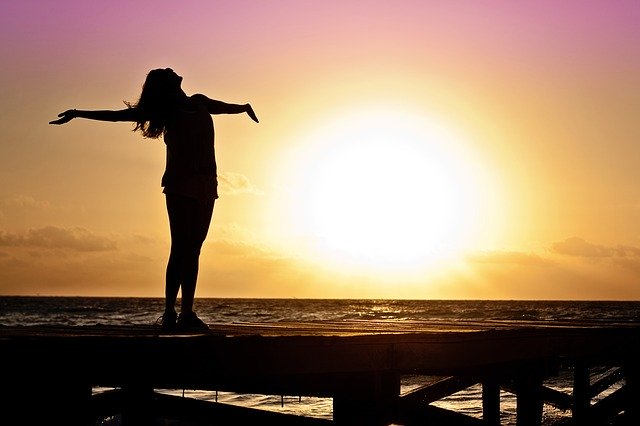Dr. Reena Kotecha presented at the 2020 Mindfulness & Compassion Global Summit on the topic of self-care for healthcare professionals. Reena highlighted the irony of healthcare professionals caring for everyone but themselves and, in the process, suffering pain, disillusionment and burnout. She shared her own story of depression, mental illness and suicidal thoughts resulting from working as a young doctor in an emergency department in a hospital. She was drowning in self-doubt, suffering anxiety about the future and trying to cope with her present level of stress symptoms such as palpitations and sleeplessness. Reena found her way out of the dark hole of depression through meditation.
She highlighted the stresses that healthcare professionals are experiencing in these challenging times of the Coronavirus. Reena spoke of frontline healthcare workers who had to move out of home to protect their family and/or elderly parents, of the sadness and grief they experienced with the death of patients, of the frustration of having inadequate resources (such as personal protective equipment) and of their fear for their own safety in terms of the impact of their work on their mental and physical health. Frontline professionals experience the intensity and immediacy of Coronavirus-related stress and emotional inflammation as a result of the risks to the life of their patients and their own life.
Barriers to healthcare professionals seeking help
Reena emphasised that healthcare professionals not only tended to overlook caring for themselves but also failed to seek help for their mental welfare when they really needed it. She spoke of the barriers that stop healthcare workers from seeking professional support (some of which she experienced herself):
- Training focus – all the focus of their training is on how to care for others, very little of the training is focused on caring for themselves or how to seek professional help for themselves
- Priority focus – healthcare professionals are singularly focused on caring for others and they fail to give priority to their own mental and emotional health that would actually enable them to care for others more effectively and in a more sustainable way. As Reena points out, healthcare professionals are much more comfortable and more proficient in the role of caregiver than that of “care-taker”.
- Career focus – healthcare professionals become concerned about what others, including management, would think of them if they admitted to not coping and experiencing some form of mental illness (which still carries its own stigma). They can be concerned about how others will judge them and what impact this would have on their career.
- Expectations focus – the community has highlighted the heroic efforts of the frontline healthcare workers but this brings with it an unrealistic set of expectations that they are all strong and courageous, free from normal human emotions of fear, anxiety and self-doubts and the resultant experience of depression with its concomitant impacts of inertia, exhaustion, reticence and lack of energy. In the light of this community expectation set, they are reluctant to admit to “weakness and fragility”.
Young healthcare professionals may begin their career with an unerring focus on their patients, giving priority to their caregiver role and ignoring their own needs. They may feel really uncomfortable about being seen as “needy” or becoming a “care-taker”. Professionalism is interpreted by them as being strong and efficient, able to cope with any situation. Gradually, however, the singular focus on patients begins to take its toll and is compounded by the fact that no matter how hard or fast they work, demand continues to outpace resources and capacity. They begin to experience stress, fatigue and sleeplessness. Despite these signs of not coping they push on – driven by their own expectations and the perceived expectations of others, including the “worshipping” community. Burnout results when the gap between what they are putting in and their intrinsic satisfaction with their work widens to the point where they lose belief in the value of what they are doing – burnout occurs on the physical, emotional and spiritual levels.
Mindfulness as self-care for healthcare professionals
Self-care for healthcare professionals is a lifetime passion for Reena, partly generated by her own early professional experience but also reinforced by the healthcare workers who seek her help and support during these highly stressful times. She is the founder of Mindful Medics – an 8 week course for healthcare professionals incorporating mindfulness, emotional intelligence, neuroscience and positive psychology. Participants in the course have experienced significant benefits for their mental and physical health as well as in their overall personal and professional lives.
Reena is also a highly recognised public speaker on the topic of her lived experience. For example she presented at the Happiness and Its Causes Conference in 2018 on the topic, Personal Story: Healthcare Starts with Self-Care. In her Summit presentation, Reena provided a gratitude meditation designed to focus on appreciation for what we have in the present to displace a focus on a disturbing past or anticipatory anxiety about the future. There is so much that we can be grateful for and savour in our life – nature and our environment, the development of our children, our achievements and rewards and the space of being alone.
Reena in an article, titled I am grateful…, recommends strongly that we develop a constant practice of expressing gratitude for the simple things that we have in our lives and highlights the neuroscience research that supports the benefits of gratitude for mental health and wellbeing.
Reflection
It is important to express compassion for others, especially healthcare professionals and those directly impacted by the Coronavirus. However, we have to recognise the enormous stress healthcare workers are experiencing in these challenging times and be more aware of not adding to that burden by perpetuating the expectation that they, individually and collectively, can cope with any challenge at no cost to themselves. We can also offer our support for people like Reena who are helping healthcare professionals to develop mindfulness as a means of self-care. The Mindful Healthcare Speaker Series is one ongoing event that we can support.
As we grow in mindfulness by focusing on self-care through mindfulness practices and gratitude meditation, we can become more conscious of what we are thinking and feeling and be better able to appreciate the present moment and all it has to offer in terms of overall wellness and happiness. Mindfulness enables us to identify our barriers and expectations, acknowledge when we need help, develop strategies to cope more effectively and progressively build our resilience.
_______________________________________
Image by Petya Georgieva from Pixabay
By Ron Passfield – Copyright (Creative Commons license, Attribution–Non Commercial–No Derivatives)
Disclosure: If you purchase a product through this site, I may earn a commission which will help to pay for the site, the associated Meetup group and the resources to support the blog.

